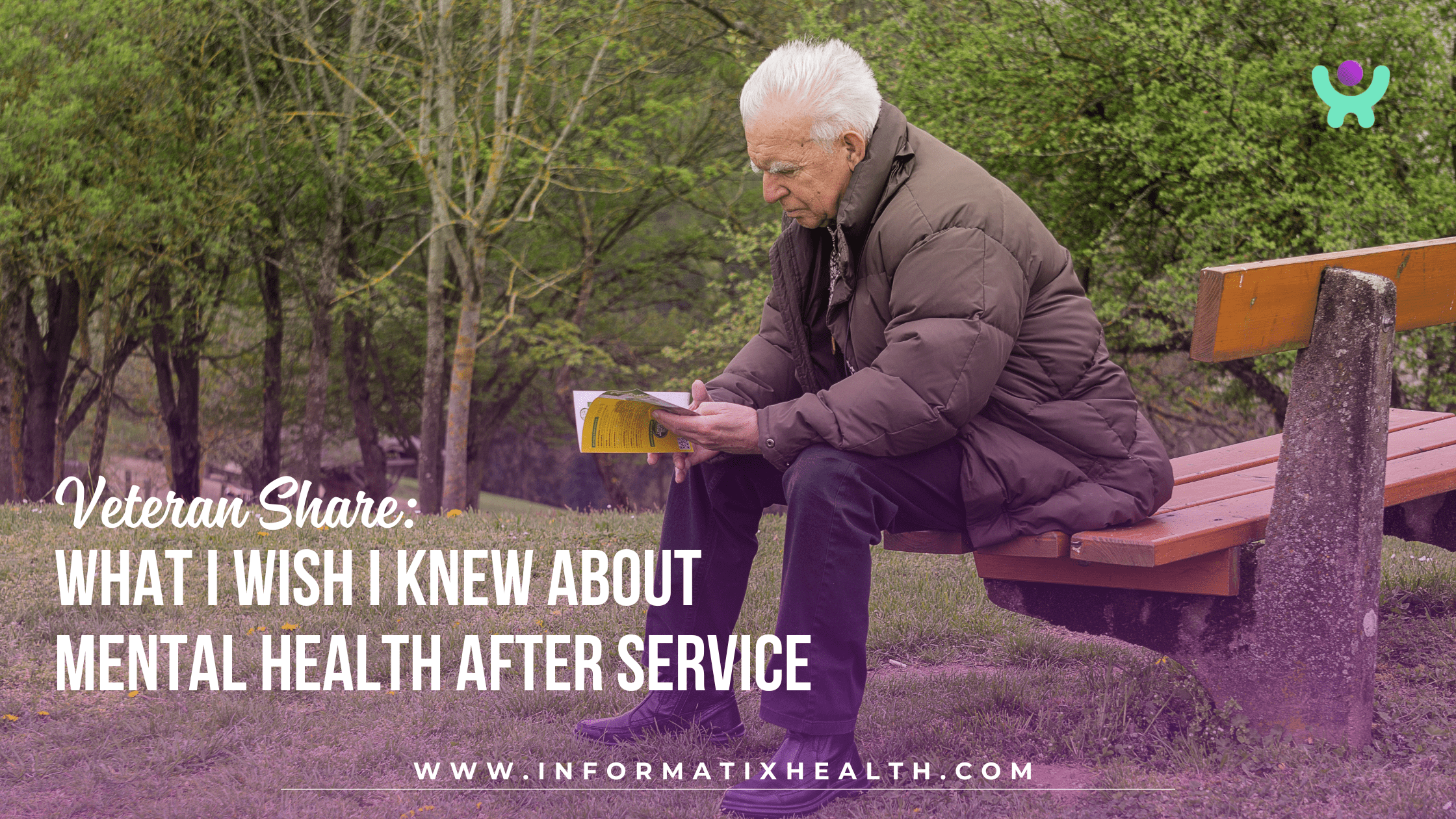“No one prepares you for the silence after service.”
— That’s how one Massachusetts veteran described the shift from active duty to civilian life. While many anticipate physical challenges after service, the mental health toll often catches them off guard. At Informatix Health, we’ve worked closely with veterans and their families, helping bridge the gap between service and healing. In honor of Mental Health Awareness Month, we’re sharing real insights from local veterans on what they wish they had known about mental health after their service.
1. “It’s okay to need help—you’re not weak.”
Several veterans shared how they delayed seeking mental health support out of pride or fear of judgment. Many were used to being seen as strong and self-reliant. But the truth is, reaching out takes courage. Whether it’s PTSD, anxiety, depression, or simply the strain of adjusting to a new life rhythm, early support makes a difference.
“I wish someone had told me that counseling wasn’t a sign of weakness—it’s maintenance for the mind.”
2. “Your family is adjusting too.”
Spouses and children often struggle silently alongside their veteran family members. Reintegrating into family life can come with tension, especially if emotional wounds go unspoken. Open communication and family counseling can ease this transition and prevent loved ones from becoming collateral damage in the recovery process.
3. “Routine helps more than I expected.”
Many veterans miss the structure that military life provides. A consistent daily routine—getting up at the same time, setting small goals, engaging in purposeful activity—can be grounding. Home health care professionals, like our caregivers at Informatix Health, often help establish this structure through scheduled check-ins, medication reminders, and wellness monitoring.
4. “Isolation is a slow trap.”
Loneliness is one of the most common yet overlooked challenges. Veterans may feel misunderstood or disconnected from others. Community support, peer groups, or even just a regular home health visit can make a huge impact.
“Having someone to talk to—even a nurse or aide—helped me feel like I was part of the world again.”
5. “You have more resources than you realize.”
Massachusetts is home to a wide network of veteran services, including mental health programs, VA clinics, and community-based care providers like Informatix Health. But many veterans don’t know where to start. That’s why we’re committed to helping our clients navigate their options, from home health support to connecting with specialized veteran services.
Supporting Veterans at Home—With Compassion and Respect
At Informatix Health, we understand that caring for veterans isn’t just about physical care—it’s about seeing the whole person. Whether you need skilled nursing, a companion for daily living, or help managing mental health after service, our team is here for you.
If you or a loved one is a veteran in need of home health support in Massachusetts, we’re just a phone call away.
📍 Serving Quincy, Braintree, Dorchester, Framingham, and beyond.
📞 Call us today or visit www.informatixhealth.com to learn more.


